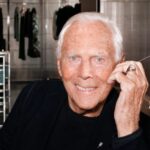- Home
- Billionaires
- Investing Newsletters
- 193CC 1000
- Article Layout 2
- Article Layout 3
- Article Layout 4
- Article Layout 5
- Article Layout 6
- Article Layout 7
- Article Layout 8
- Article Layout 9
- Article Layout 10
- Article Layout 11
- Article Layout 12
- Article Layout 13
- Article Layout 14
- Article Sidebar
- Post Format
- pages
- Archive Layouts
- Post Gallery
- Post Video Background
- Post Review
- Sponsored Post
- Leadership
- Business
- Money
- Small Business
- Innovation
- Shop
Recent Posts
Mikhail Prokhorov: The Billionaire Maverick of Modern Russia

Mikhail Dmitrievitch Prokhorov stands as one of the most enigmatic figures in post-Soviet Russia, a billionaire whose life spans the realms of high finance, politics, sports, and philanthropy. Born on May 3, 1965, in Moscow, Prokhorov came of age during a period of immense transformation in the Soviet Union, eventually carving a name for himself as one of Russia’s most successful businessmen following the collapse of the USSR. His journey from a middle-class upbringing to becoming one of the richest men in Russia is a tale that intertwines ambition, strategy, and a distinct personal style.
Prokhorov’s early life did not offer any clues that he would eventually dominate Russia’s financial world. His father worked for the Soviet sports committee and his mother was a chemical engineer. Mikhail was educated at the prestigious Moscow Finance Institute, graduating in 1989, just as the Soviet system was beginning to disintegrate. This timing would prove to be fortuitous. Alongside fellow billionaire Vladimir Potanin, Prokhorov took advantage of the privatization wave that swept across Russia in the 1990s. The two men founded Interros, a holding company that would become the vehicle for their acquisition of Norilsk Nickel, one of the world’s largest producers of nickel and palladium.
Under Prokhorov’s leadership, Norilsk Nickel transformed into a global metals powerhouse. His ability to restructure and streamline operations, despite the challenging post-Soviet industrial landscape, marked him as a formidable business strategist. However, Prokhorov’s business career wasn’t without controversy. Critics pointed to the often opaque methods through which state-owned assets were acquired during Russia’s privatization, though Prokhorov maintained that his deals were all above board. Nevertheless, his wealth continued to grow, and by the mid-2000s he was consistently ranked among Russia’s richest individuals.
In 2007, Prokhorov stepped down from Norilsk Nickel in a high-profile and somewhat mysterious decision, selling his stake for billions of dollars. This move occurred around the time of his detainment in France on suspicion of arranging illicit activities at a luxury ski resort, though he was later released and not charged. The incident fueled his image as a charismatic and occasionally controversial figure. It also marked a shift in his career trajectory, leading him into new ventures including investments in technology, media, and international sports.
One of the most public chapters in Prokhorov’s life came in 2010 when he purchased a controlling interest in the NBA’s New Jersey Nets, later relocating the team to Brooklyn and rebranding them as the Brooklyn Nets. He became the first non-North American majority owner of an NBA team, bringing a distinctly global flair to American professional sports. His ownership style was bold and ambitious, as he promised fans a championship within five years. While the Nets did not achieve that feat under his tenure, his investment significantly boosted the team’s value and raised his profile internationally.
Prokhorov’s foray into politics came in 2011 when he announced the formation of the “Right Cause” party and later ran as an independent candidate in the 2012 Russian presidential election. Positioning himself as a pro-business, reform-minded liberal, he offered an alternative to Vladimir Putin’s dominance. Despite his campaign being largely symbolic—he secured about 8% of the vote—his candidacy was notable for its professionalism and appeal to Russia’s urban middle class. Many political analysts debated whether his campaign was a genuine challenge or a Kremlin-sanctioned operation to create the illusion of democratic choice, but Prokhorov always insisted on his independence.
Beyond business and politics, Prokhorov has long been known for his colorful personal life. Towering at over six and a half feet tall, athletic, and frequently seen in high-end fashion, he has cultivated a playboy image—yet he remains a deeply private individual. He is famously unmarried and has no children, a fact that has often made headlines in Russia and abroad. Despite the glitz, he has shown a strong philanthropic streak, particularly through his charitable foundation which supports arts, culture, and education across Russia. His support of contemporary art and literature has helped nurture a new generation of Russian talent, and he is often recognized as one of the few Russian oligarchs to actively invest in cultural development.
Prokhorov’s philosophy on wealth and success stands apart from his peers. In interviews, he frequently emphasizes personal freedom, innovation, and self-discipline. He once said that he treats money as a tool rather than a goal, and his diverse investments reflect a desire to explore new territories rather than simply amass wealth. From funding startups to sponsoring avant-garde art exhibits, Prokhorov has used his fortune to support ventures far outside traditional business interests.
Over the years, his net worth has fluctuated with market conditions and political developments, particularly as Western sanctions and internal reforms have impacted Russian billionaires. Yet, Prokhorov has remained relatively unscathed, in part because of his global portfolio and strategic divestments from more politically sensitive industries. His sale of the Brooklyn Nets in 2019 to Alibaba co-founder Joseph Tsai for a reported $3.5 billion marked the end of a chapter but also underscored his talent for timing and investment.
Despite stepping back from public life in recent years, Mikhail Prokhorov continues to fascinate observers with his mix of charisma, intelligence, and unpredictability. He is a symbol of a generation of Russians who seized unprecedented opportunities during a volatile era and built empires with a mix of acumen and audacity. In a nation where business, politics, and personal branding often intersect in complex ways, Prokhorov remains a unique figure: part oligarch, part visionary, and part cultural patron.
As Russia continues to evolve under the weight of international scrutiny and internal change, figures like Mikhail Prokhorov provide insight into the potential paths forward. Whether as a businessman, political aspirant, or global citizen, he reflects both the contradictions and the ambitions of modern Russia. His story is not merely about the accumulation of wealth, but about the interplay between power, identity, and the pursuit of legacy.
- 2012 Russian election
- Brooklyn Nets
- business ethics Russia
- controversial businessmen
- cultural investment
- economic transformation Russia
- French ski resort scandal
- global investors
- global real estate
- International Business
- Interros
- lifestyle of billionaires
- media investments
- Mikhail Prokhorov
- modern Russia
- modern Russian history
- Moscow Finance Institute
- NBA history
- NBA owner
- Norilsk Nickel
- political reform Russia
- post-communist wealth
- post-Soviet Russia
- privatization in Russia
- Prokhorov biography
- Prokhorov foundation
- Putin challengers
- Right Cause party
- Russian art patron
- Russian billionaire
- Russian billionaires list
- Russian business
- Russian culture
- Russian economy
- Russian elections
- Russian entrepreneurs
- Russian financial elite
- Russian innovation
- Russian liberals
- Russian oligarchs
- Russian philanthropy
- Russian politics
- Russian politics 2010s
- Russian reformers
- Russian start-ups
- Russian-American relations
- sports business
- tech investments Russia
- Vladimir Potanin
- wealthy Russians
Recent Posts
Categories
- 193 Countries Consortium Partner1
- 193cc Digital Assets2
- 5G1
- Aerospace & Defense48
- AI37
- Arts3
- Banking & Insurance11
- Big Data3
- Billionaires1,506
- Boats & Planes1
- Business332
- Careers13
- Cars & Bikes79
- CEO Network1
- CFO Network17
- CHRO Network1
- CIO Network1
- Cloud10
- CMO Network18
- Commercial Real Estate7
- Consultant1
- Consumer Tech194
- CxO1
- Cybersecurity73
- Dining1
- Diversity, Equity & Inclusion4
- Education7
- Energy8
- Enterprise Tech29
- Events11
- Fintech1
- Food & Drink2
- Franchises1
- Freelance1
- Future Of Work2
- Games149
- GIG1
- Healthcare79
- Hollywood & Entertainment203
- Houses1
- India’s 1000 Richest1
- Innovation46
- Investing2
- Investing Newsletters4
- Leadership65
- Lifestyle11
- Manufacturing1
- Markets20
- Media327
- Mobile phone1
- Money13
- Personal Finance2
- Policy569
- Real Estate1
- Research6
- Retail1
- Retirement1
- Small Business1
- SportsMoney42
- Style & Beauty1
- Success Income1
- Taxes2
- Travel10
- Uncategorized15
- Vices1
- Watches & Jewelry2
- world's billionaires1,475
- Worlds Richest Self-Made Women2
Related Articles
Francis Choi: The Toy Tycoon Behind a Billion-Dollar Empire
Francis Choi Chee-ming, often referred to as Hong Kong’s “King of Toys,”...
By 193cc World's BillionairesJune 6, 2025Francine von Finck and the Legacy of a Discreet Fortune
Francine von Finck, a name that commands respect in elite business circles,...
By 193cc World's BillionairesJune 6, 2025The Life and Legacy of Stefano Pessina
Stefano Pessina, one of the most influential figures in the global pharmaceutical...
By 193cc World's BillionairesJune 6, 2025John Morris: A Life of Vision, Growth, and Legacy
John Morris, the founder of Bass Pro Shops, is an iconic figure...
By 193cc World's BillionairesJune 6, 2025















Leave a comment